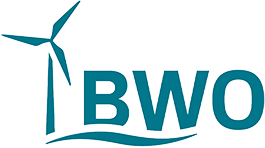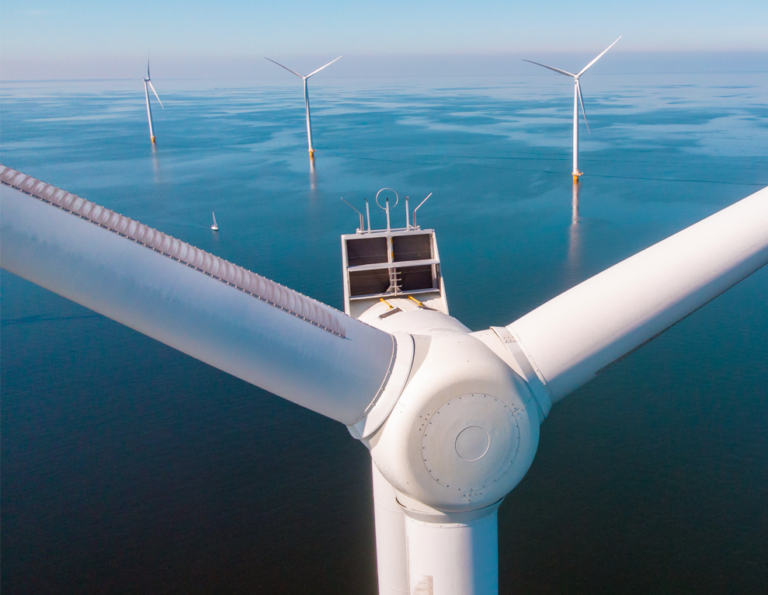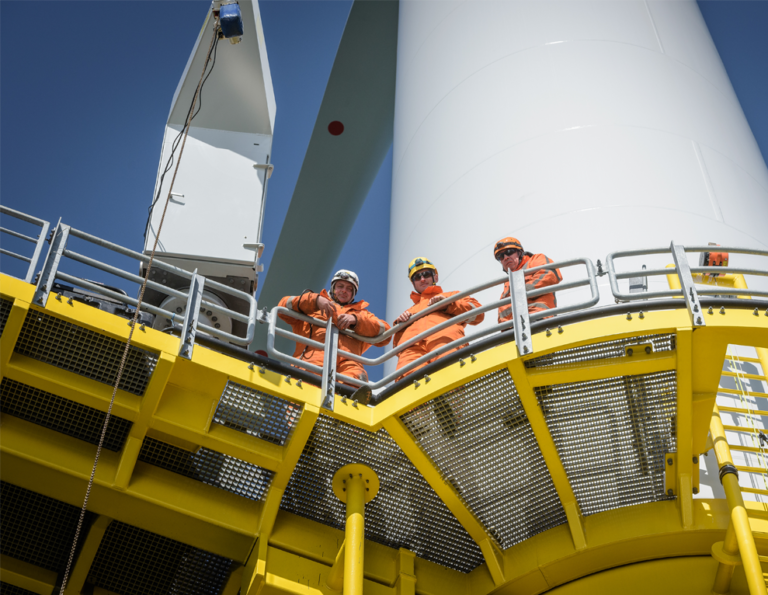Constitutional complaint against wind energy at sea act partially successful
Federal Constitutional Court confirms errors in handling the Kaikas offshore wind project
“With today's judgment, the Federal Constitutional Court has confirmed that the exclusion of the Kaikas project from future tenders without compensation was not lawful. This partially confirmed the business confidence in the German legal system. Nevertheless, from our point of view - especially with regard to the ambitious climate targets - it is absolutely incomprehensible why a project that has already been approved should not be built. But the judgment is not only groundbreaking with a view to the past, but also with a view to the current legislative procedure for the offshore wind energy law, ”explains Stefan Thimm, managing director of the BWO.
With the amendment of the Wind Energy Offshore Act (WindSeeG) 2017, control over existing project rights initially fell to the state so that it can carry out tenders for the further cost-efficient expansion of offshore wind energy. To compensate for this loss, the legislature granted the project developers concerned, who had previously invested tens of millions of euros based on the existing legal framework, a right of entry. This right of entry provides that the previous project owners have the opportunity to realize their project at the conditions awarded after the auction - even if another company has won the bid. The right of entry is therefore the legitimate compensation for the lost project rights. Kaikas is the only offshore wind project that has already been approved to be excluded from the tenders required by the offshore wind energy law - without compensation. The reason: In March 2015, the Federal Maritime and Hydrographic Agency declared that plan approval procedures for offshore wind energy projects in zones 3 to 5 would not be continued because there was no prospect of a near-term grid connection. All attempts at a political solution for the approved project by wpd failed. The case ended up before the Federal Constitutional Court.
The ongoing legislative process is again jeopardizing the rights of investors
The WindSeeG will be amended again this year. In the opinion of the BWO, there is again the risk that the legislature will subsequently curtail the rights of investors with the introduction of a second bid component.
“The right of entry is the legal compensation for the assigned project rights. In our legal opinion, the introduction of a second bid component would devalue the right of entry afterwards, as it considerably reduces the profitability and thus the probability of project implementation, ”explains Stefan Thimm, Managing Director of the BWO. By clarifying the WindSeeG, the legislature excluded the submission of negative bids in future tenders in 2017. This would now be introduced retrospectively for the tenders from 2021 through the second bid component. "Such a concession payment or a negative bid represents a serious breach of the tendering principles that were only introduced in 2017. Two legal opinions commissioned independently of one another therefore come to the conclusion that the constitutionality of the second component of the bid is doubtful.", Thimm continues.
The BWO had already proposed an alternative model in 2018 that would reduce the electricity production costs by up to 30 percent compared to the model proposed by the Federal Ministry of Economics. “That relieves consumers and the economy. Against the background of the current economic crisis and the necessary revitalization of the German economy after the corona pandemic, the aim must be to secure internationally competitive electricity prices, ”Thimm appeals to the political decision-makers. The model pursued by the federal government is particularly critical for medium-sized and municipal actors. Since only bidders with the highest risk affinity are awarded the contract, medium-sized project planners and municipal companies would be pushed out of the market. This reduces both the diversity of actors and the intensity of competition.
In addition, the model proposed by the BWO leads to an increase in the probability of implementation of systems that have received additional funding. In view of the importance of electricity generation at sea for maintaining the security of supply - despite the phase out of nuclear energy and coal - it is not understandable that the federal government is prepared to take an avoidable risk at this point.
With the second component of the bid, the federal government is taking a special German path. Enormous investments in climate protection would be triggered worldwide in the coming years. Other European countries such as DK, UK, IT and FR have already introduced contracts for difference and thus prepared the ground for investors. Poland recently announced that it would refinance 10 GW of offshore wind energy through contracts for difference. "Germany should not fall behind here, as the CO2 reduction targets cannot be met without the corresponding implementation of RE systems," said Thimm. Some investors have already announced that, when introducing a second bid component, they will move to other markets where there is a better investment climate.
Contact person:
Head of Communications
Phone: + 49 (30) 28 444 650
Email: l.dettmer@bwo-offshorewind.de



